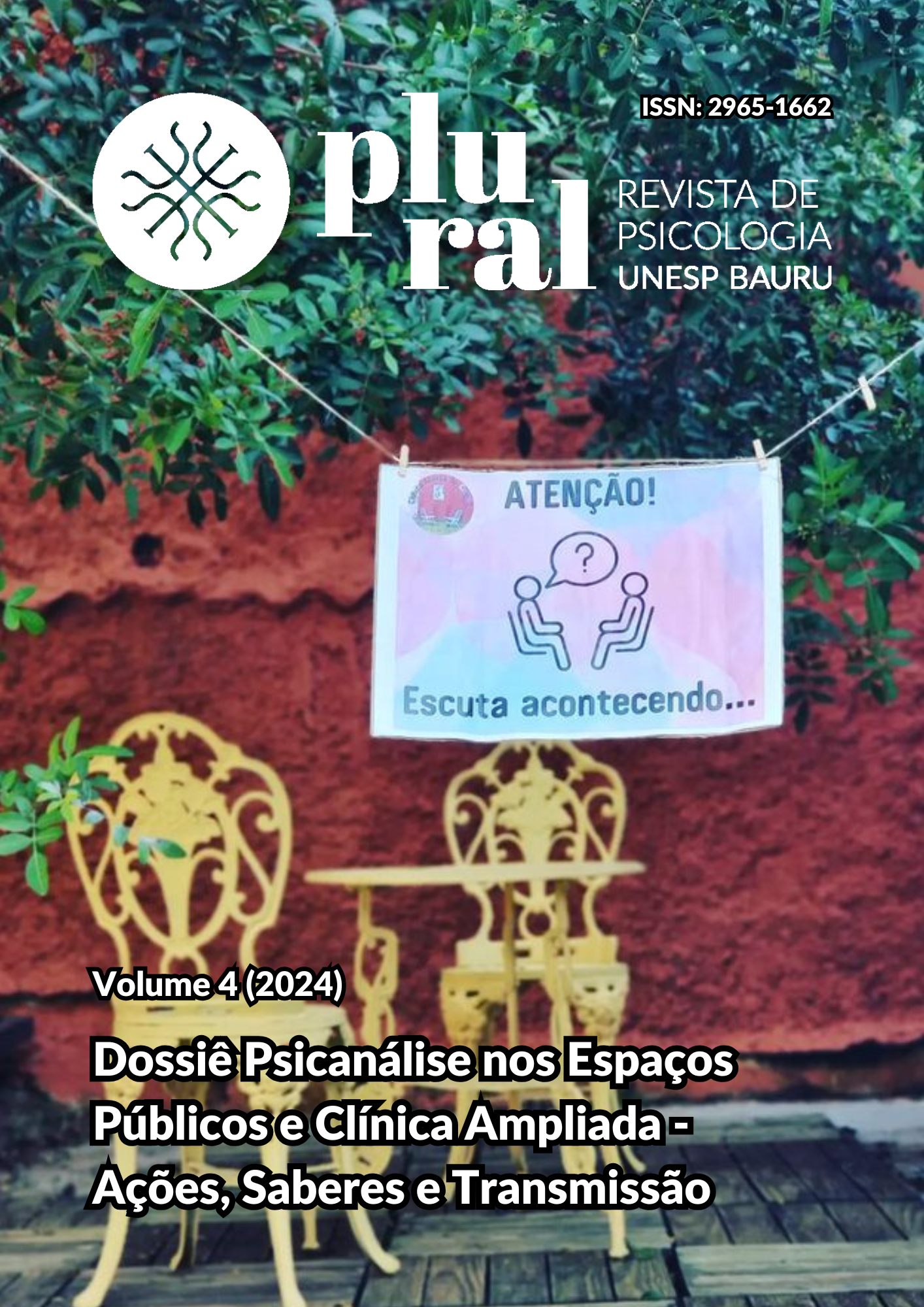Facing the roots of whiteness
the experience of blackening of the Tree House
DOI:
https://doi.org/10.59099/prpub.2024.88Keywords:
Institutions; Racism; Whiteness; Psychoanalysis clinic; Experience reportAbstract
This article aims to analyze and reflect on the importance of studies on racial relations and the urgency of discussing racial parity within institutions. The report of professional experience within the NGO Casa da Árvore, an expanded psychoanalysis clinic that has been operating since 2001 in Rio de Janeiro, providing care for peripheral children and families, was used. The results of this work point to important impacts observed in clinical work with children, in addition to a broader view of work within the team. By producing this report, we seek to provide support so that other institutions can reflect on the profile of their professionals and develop strategies that aim to blacken the teams, considering essential aspects in the process such as the analysis of the maintenance of privileges in access policies and the theoretical guidelines of the group.
References
Almeida, S. (2018). O que é racismo estrutural? Letramento.
Bento, C. (2022). O pacto da branquitude. Companhia das Letras.
Bezerra Júnior, B. (2008). Os desafios de um experimento. In L. Milman & B. Bezerra Júnior (Orgs.), A Casa da Árvore: uma experiência inovadora na atenção à infância. (pp. 15-30). Garamond.
Bispo dos Santos, A. (2022). Início, meio, início. In A. Bispo dos Santos, M. S. Rodrigues, L. Rufino & A. Mumbuca, Quatro cantos (pp.18-45). N-1.
Bispo dos Santos, A. (2023). A terra dá, a terra quer. Ubu/ PISEAGRAMA.
Bispo dos Santos, A. (2023). Somos da Terra. In F. Carnevalli, F. Regaldo, P. Lobato, R. Marquez & W. Cançado, Terra: antologia afro-indígena (pp. 7-18). Ubu/PISEGRAMA.
Da Silva, M. L. (2017). Racismo no Brasil: questões para psicanalistas brasileiros. In N. M. Kon, M. L. da Silva & C. C. Abud (Orgs.), O Racismo e o negro no Brasil: questões para a psicanálise (pp. 71-89). Perspectiva.
Frantz, F. (2020). Pele negra máscaras brancas. Ubu.
Gordon, L. R. (2008). Prefácio. In F, Fanon, Pele negra, máscaras brancas (pp. 11-17). EDUFBA.
hooks, b. (2019). Erguer a voz: pensar como feminista, pensar como negra. Elefante.
Kilomba, G. (2020). Prefácio: Fanon, existência, ausência. In F. Fanon, Pele negra máscaras brancas (pp. 11-20). Ubu.
Kilomba, G. (2019). Performar negritude. In G. Kilomba, Memórias da plantação – Episódios cotidianos de racismo (pp. 173-185). Cobogó.
Maeda, P. (2020). O racismo brasileiro na obra de Lelia Gonzales. Carta Capital. https://www.cartacapital.com.br/blogs/sororidade-em-pauta/o-racismo-brasileiro-na-obra-de-lelia-gonzalez/
Milman, L. (2008). Um pouco da história. In L. Milman & B. Bezerra Júnior (Orgs.), A Casa da Árvore: uma experiência inovadora na atenção à infância, (pp. 31-51). Garamond.
Noguera, R., Barreto, M. (2018). Infancialização, ubuntu e teko porã: elementos gerais para educação e ética afroperspectivistas. Childhood & Philosophy, 14(31), 625-644. https://doi.org/10.12957/childphilo.2018.36200 DOI: https://doi.org/10.12957/childphilo.2018.36200
Racionais MC’s (2006). A vida é desafio. In Racionais MC’s, 1000 trutas, 1000 tretas. Cosa Nostra.
Ribeiro, D. (2017). O que é lugar de fala? Letramento.
Rodrigues, M. S. (2022). Somos religião e subjetividade. In A. Bispo dos Santos, M. S. Rodrigues, L. Rufino & A. Mumbuca, Quatro cantos (pp. 52-65). N-1.
Rufino, L. (2016). Performances Afro-diaspóricas e Descolonialidade: o saber corporal a partir de Exu e suas encruzilhadas. Antropolítica – Revista Contemporânea de Antropologia, 1(40), 54-80. https://doi.org/10.22409/antropolitica2016.1i40.a41797 DOI: https://doi.org/10.22409/antropolitica2016.1i40.a451
Souza, N. S. (1983). Tornar-se negro: vicissitudes do negro brasileiro em ascensão social. Graal.

Downloads
Published
How to Cite
Issue
Section
License
Copyright (c) 2024 Luana Nogueira de Farias Moura, Nicole Xavier Meirels, Fernanda Augusta Amitay Kutwak, Luana Corrêa dos Santos, Liandra Lima Carvalho

This work is licensed under a Creative Commons Attribution 4.0 International License.
Authors agree to the following terms of PLURAL - Revista de Psicologia UNESP Bauru:
Articles submitted must be original and will be published for the first time by Revista Plural, but authors will retain copyright. The work will be simultaneously licensed under the Creative Commons Attribution CC-By 4.0 International License to allow the work to be shared with acknowledgement of authorship and first publication by this journal.
Authors are allowed to enter into additional contracts separately, for example, to publish in an institutional repository or as a book chapter, as long as both the acknowledgement of authorship and initial publication in this journal are detailed and recorded.
Authors are allowed and encouraged to publish and distribute their work online in institutional repositories (preprints) or on their personal website.








